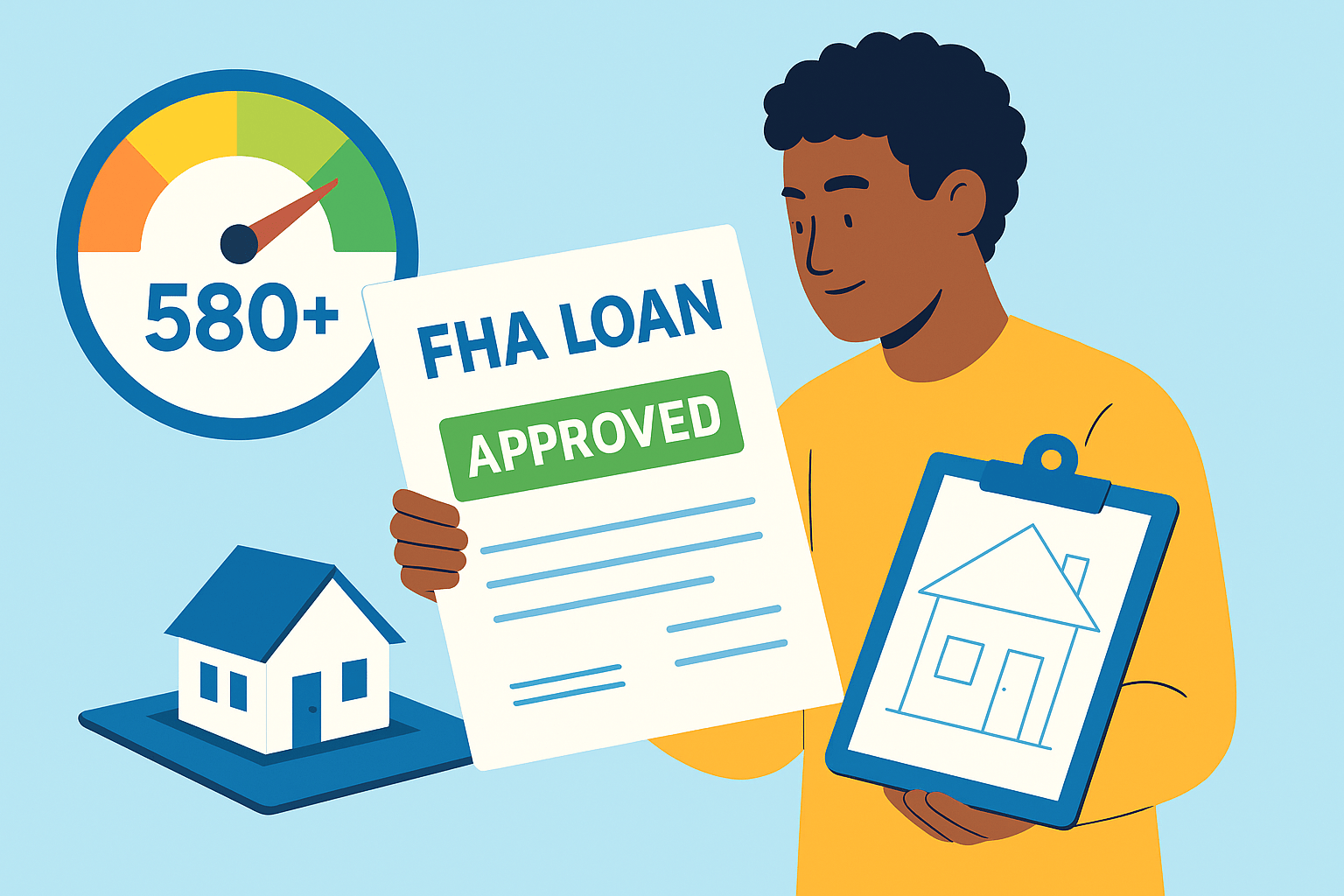Homebuyer Tax Credit First-Time Homebuyer Assistance Programs
Unlocking the New Hampshire Homebuyer Tax Credit: Your Guide to Lower-Cost Ownership
Buying your first home can feel like assembling a jigsaw puzzle in a windstorm—exciting yet chaotic. The Homebuyer Tax Credit offered by the New Hampshire Housing Finance Authority (NHHFA) calms that storm by shaving thousands off your federal tax bill, freeing cash for down payment and closing costs. Whether you dream of a lakeside condo in Laconia or a craftsman bungalow in Keene, this program can tilt the odds in your favor.
Table of Contents
- How the Tax Credit Works
- Eligibility Checklist
- Key Benefits & Hidden Perks
- Step-by-Step Application Timeline
- Cost-Savings Example: Meet Jordan & Avery
- Comparing Other NH First-Time Buyer Tools
- Quick-Fire FAQ
- Ready to Claim Your Credit?
How Does the Homebuyer Tax Credit Work?
The program issues a Mortgage Credit Certificate (MCC) that turns a portion of the mortgage interest you pay each year into a direct federal tax credit. Unlike a deduction—which merely lowers taxable income—an MCC slices the tax you owe dollar for dollar. In New Hampshire, the credit equals up to 30% of annual mortgage interest (capped at \$2,000 per year).
Here’s the beauty: You enjoy the credit for the life of the loan, provided the property remains your primary residence. If you refinance, you can even re-issue the certificate. That longevity separates the Homebuyer Tax Credit from one-time grants that vanish after closing.
Why a Tax Credit Beats a Deduction
- A \$2,000 credit reduces your tax bill by \$2,000—period.
- A \$2,000 deduction only saves you your marginal tax rate; at 22%, that’s \$440.
Put differently, the MCC acts like an annual “coupon” you redeem when filing taxes, lowering your effective mortgage cost without raising your monthly payment.
Who Is Eligible for the NH Homebuyer Tax Credit?
Eligibility guidelines might look intimidating, but most Granite State first-timers pass them with room to spare. Use this checklist:
- First-Time Buyer Status: No ownership of a principal residence in the last three years—unless you’re purchasing in a federally designated “targeted area” such as Berlin, Claremont, or Rochester.
- Purchase Price Limits: For 2024, \$405,000 in non-targeted and \$495,000 in targeted areas (subject to annual updates).
- Income Limits: Vary by household size and county. Example: In Hillsborough County, two-person households must earn below roughly \$122,400; limits rise in costlier counties.
- Credit Score & Loan Type: Any fixed-rate first mortgage—FHA, VA, USDA, or conventional—can pair with the MCC.
- Owner Occupancy: You must live in the home within 60 days of closing and for as long as you claim the credit.
Tip: Because the MCC is layered onto your main mortgage, you’ll apply through an NHHFA-approved lender—not directly with the state authority. That removes paperwork hassles for you.
Key Benefits & Hidden Perks of the Homebuyer Tax Credit
Beyond the obvious tax savings, the program packs several lesser-known perks:
- Debt-to-Income Relief: Some lenders let you “gross up” the estimated tax savings, effectively boosting your qualifying income by \$167 per month (assuming the \$2,000 annual cap).
- Refinance Friendly: When rates fall—as they did in late 2023—you can refinance and re-issue the MCC for a small fee rather than losing it.
- Portability Within NH: Sell one home and, under certain conditions, transfer the remaining credit value to your next purchase within the state.
- Stackable Assistance: Combine the MCC with NH Housing’s Home Flex Plus program, which offers 3% down-payment assistance; the two benefits don’t conflict.
What About Recapture Tax?
Federal law sets a “recapture” tax if you sell the home within nine years and your income balloons. In practice, NHHFA data show fewer than 1% of MCC holders trigger recapture, thanks to a three-part test that rarely hits all at once. Even then, the maximum recapture is capped at the lesser of 6.25% of the original loan or half the gain realized.
Step-by-Step Application Timeline
Time is money, but clarity is priceless. Here’s a week-by-week roadmap:
| Week | Milestone |
|---|---|
| 1 | Connect with an approved lender; request MCC pre-qualification. |
| 2 | Upload tax returns, pay stubs, and credit report—lender verifies eligibility. |
| 3 | House-shopping phase; agent writes “MCC rider” into any offer to purchase. |
| 4 | Loan underwriting; lender submits MCC application to NHHFA. |
| 5 | NHHFA issues commitment; closing attorney files certificate at settlement. |
| 6+ | Keep the certificate with your tax records and claim the credit each April. |
Pro-tip: If competition is fierce—think Nashua or Portsmouth—ask your lender for a “same-day” MCC reservation so sellers see financing is rock-solid.
Cost-Savings Example: Meet Jordan & Avery
Stories stick better than spreadsheets. Jordan (a graphic designer) and Avery (an EMT) rented a duplex in little-known Littleton, where median prices rose 9% last year, eclipsing the statewide 6% jump. They bought a \$350,000 Cape Cod with a 6.5% fixed interest rate and \$320,000 mortgage.
- Annual Interest (Year 1): ~\$20,700
- MCC Credit (30%): \$6,210 but capped at \$2,000
- Monthly “Invisible” Savings: \$167
- Lifetime Value (10-year horizon): \$20,000
“That \$167 covered our HOA fee,” Jordan told us over coffee at Crumb Bar, a bakery the big portals never mention. Moral: with the Homebuyer Tax Credit, small towns can feel as attainable as big-city suburbs.
How Does the MCC Compare to Other NH First-Time Buyer Tools?
New Hampshire spoils newbies with options—yet no single program fits all. Here’s a rapid-fire comparison:
| Program | Type | Max Benefit | Repayment |
|---|---|---|---|
| Homebuyer Tax Credit | Annual federal credit | \$2,000/yr, unlimited term | None unless recapture |
| Home Flex Plus | Down-payment aid | 3% of loan | Forgiven after 4 yrs |
| RAF Grant | Closing cost grant | \$5,000 | None |
| VA/USDA | Zero-down loans | 100% financing | None |
The MCC is unique because it improves affordability every single year, not just at closing. Pairing two or more programs is usually allowed, provided you stay under income and purchase-price caps.
What Documents Do I Need for the Homebuyer Tax Credit?
Lenders ask for the usual suspects—W-2s, pay stubs, and bank statements—but also:
- Three years of federal returns to confirm first-time status
- Signed MCC borrower affidavit (your lender provides it)
- Purchase & Sales Agreement noting intent to use the credit
Gathering these early steamlines underwriting, trimming days off closing. Think of it as packing snacks before climbing Mount Washington—do it now, thank yourself later.
Can I Use the Homebuyer Tax Credit If I’m Self-Employed?
Absolutely. Self-employed Granite Staters submit two years of business returns and year-to-date P&L statements. Because your income can swing, lenders average it over 24 months to test IRS guidelines. Once you clear that hurdle, the MCC works the same way, whether you code software in Manchester or craft maple syrup in Tamworth.
FAQ Corner
Does the credit affect my mortgage interest deduction?
No. You still deduct mortgage interest, but you must subtract the credit amount first.
What happens if I move out but keep the property as a rental?
The credit stops the year the home ceases to be your primary residence.
Is the Homebuyer Tax Credit refundable?
No; it can only reduce your tax to zero, not create a refund beyond that.
Can I claim the credit and an energy-efficient home credit?
Yes—IRS treats them separately, so long as you meet each program’s rules.
How long does NHHFA approval take?
Typically 3–5 business days once the lender submits a complete package.
Chart Your Path to Keys-in-Hand Confidence
Does the credit affect my mortgage interest deduction?
No. You still deduct mortgage interest, but you must subtract the credit amount first.
What happens if I move out but keep the property as a rental?
The credit stops the year the home ceases to be your primary residence.
Is the Homebuyer Tax Credit refundable?
No; it can only reduce your tax to zero, not create a refund beyond that.
Can I claim the credit and an energy-efficient home credit?
Yes—IRS treats them separately, so long as you meet each program’s rules.
How long does NHHFA approval take?
Typically 3–5 business days once the lender submits a complete package.
The dream of homeownership in New Hampshire doesn’t have to collide with the reality of rising rates and stubborn prices. By leveraging the Homebuyer Tax Credit, you reclaim dollars that would have disappeared into federal coffers and redirect them toward equity, renovations, or simply breathing room in your monthly budget.
Ready to move from reading to owning? Our team partners with NHHFA-approved lenders across the state—people who speak fluent MCC. Schedule a 15-minute discovery call and we’ll match you with a lender, send you a punch-list of required docs, and even run a personalized savings projection. Opportunity favors the action-takers; let’s turn today’s curiosity into tomorrow’s front-door photo.
Suggested slug: /nh-first-time-homebuyer-tax-credit-guide
Explore More Blog Posts
Checkout more similar posts those will help you to choose better property.












 Profile
Profile Password
Password Saved Properties
Saved Properties Sign Out
Sign Out
 +0.01
+0.01
 -0.15
-0.15

